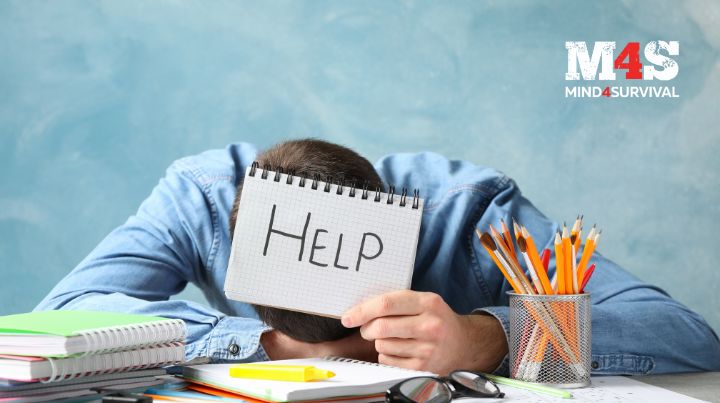Realize all the benefits you’ve gotten from being prepared – less stress, saving money, saving time by not having to run to the store all the time, etc.
Instead of focusing on what you haven’t done, recognize how far you’ve come. Take inventory of your preps and appreciate the progress you’ve made. Acknowledge small wins, such as completing a first aid course, growing your own food, or adding to your water storage.
10. Stay Positive
Prepping should not be solely about fearing the worst—it should be about equipping yourself for whatever comes your way. Stay curious, continue learning new skills, and find joy in the journey rather than fixating on potential disasters.
Final Thoughts
Prepper burnout is a real challenge, but it doesn’t mean you should forget about preparing for emergencies. By managing stress, setting realistic goals, and staying engaged with the community, you can overcome burnout and continue building a resilient lifestyle. Remember, prepping is a marathon, not a sprint—pace yourself and find a balance that works for you.
Read the full article here


27 Comments
Focusing on the positive aspects of prepping, like saving time and reducing stress, can change your perspective. It’s not just about doom and gloom.
Exactly! It’s about empowerment, not fear.
Finding joy in the process makes it sustainable.
This is a great reminder to step back and appreciate how far we’ve come in our preparedness journey. It’s easy to get overwhelmed with all the what-ifs.
Sometimes the progress isn’t as visible as we’d like, but it’s there.
Absolutely! Small victories add up over time.
Taking inventory of what you’ve already accomplished can be a game-changer. It’s easy to overlook how much you’ve done.
A tangible list of progress can be a great motivator.
Celebrate those small wins—they add up quickly.
It’s easy to lose sight of the bigger picture when focusing on potential disasters. Shifting to a mindset of empowerment can make all the difference.
Prepping should be about capability, not dread.
Empowerment over fear—definitely a healthier approach.
Managing stress is crucial when it comes to prepping. If it starts feeling like a burden, it’s time to reassess your approach.
Prepping should be a positive habit, not a source of anxiety.
Finding balance is the key to long-term success.
I like the idea of acknowledging small wins, like completing a first aid course or adding to water storage. Those moments fuel the journey.
Every little bit adds to your overall preparedness.
Small wins build momentum and keep you moving forward.
I’ve noticed that staying connected with the prepper community helps me stay motivated. Hearing others’ successes and challenges keeps me engaged.
It’s inspiring to see others’ progress and learn from them.
Community support makes a huge difference in longevity.
Prepping doesn’t have to be a source of stress. Reframing it as a way to gain skills and confidence makes all the difference.
Confidence in your abilities is a huge benefit.
Skills learned now will be useful in any situation.
Prepper burnout is real, but setting smaller, achievable goals can help keep the momentum going. It’s a marathon, not a sprint.
Consistent progress is key. Even small steps count.
Breaking it down makes the task feel less daunting.